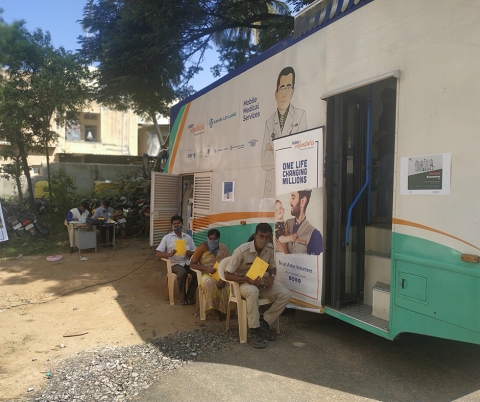Policy Surveillance of Universal Health Coverage Financing in Developing Countries (2022-2023)
An important United Nations sustainable development goal target for health aims to “achieve universal health coverage, including financial risk protection, access to quality essential health care services and access to safe, effective, quality and affordable essential medicines and vaccines for all.”
Following this declaration, significant resources have been invested in tracking countries’ progress toward the achievement of universal health coverage (UHC). However, these efforts disproportionately focus on tracking implementation and outcome metrics without sufficient attention to the policy environment needed to achieve success.
Building on the work of the 2021-2022 team, this project team carried out literature review, drafted coding questions, collected policy/law data and coded and analyzed the policies to better understand pathways toward UHC. Team members worked with a multidisciplinary team of researchers at the Duke Center for Policy Impact in Global Health and the Policy Surveillance Program of the Center for Public Health Law Research at Temple University to conduct policy surveillance on UHC financing in LMICs.
The Policy Analysis subteam focused on mapping the progress of UHC policy in Ghana and Rwanda in partnership with in-country stakeholders. Meanwhile, the Systematic Review subteam analyzed factors that determine prioritization of children’s health policies in low- and middle-income countries and developed protocol for further research.
Timing
Fall 2022 – Spring 2023
Team Outputs
Tracking Progress in Global Health (2023 Fortin Foundation Bass Connections Virtual Showcase)
Policy Surveillance of Universal Health Coverage Financing in Developing Countries (poster by Mary Winfred Ugonma Edom, Theiija Balasubramanian, Kiara Ekeigwe, Carlos Hua, Zain Jafar, Suresh Kannoth, Jurica Miklobusec, Judith Mwobobia, Ava Ondik, Michelle Schultze, Ei Ei Swe, You Wu, Ana Young, Ashwini Deshpande, Adam Herpolsheimer, Rosemary Fernholz, Gavin Yamey and Osondu Ogbuoji, presented at Fortin Foundation Bass Connections Showcase, Duke University, April 19, 2023)
Timeline of UHC policy development in Ghana and Rwanda
Protocol for further research
See Data+ summer project, Policy Surveillance of UHC Financing in Developing Countries (2022), and earlier related team, Policy Surveillance of Financing for Universal Health Coverage (2021-2022).
Image: Universal Health Coverage Day 2020, by Trinity Care Foundation, licensed under CC BY-NC-ND 2.0

Team Leaders
- Ashwini Sunil Deshpande, Duke Global Health Institute
- Osondu Ogbuoji, Duke Global Health Institute
- Gavin Yamey, Duke Global Health Institute
/graduate Team Members
-
Judith Mwobobia, PPS Non-degree
-
Ei Swe, Global Health - MSc
/undergraduate Team Members
-
Theiija Balasubramanian, Public Policy Studies (AB)
-
Kiara Ekeigwe, Biology (BS)
-
Yuxuan Hua, Political Science (AB)
-
Zain Jafar, Program II (AB)
-
Suresh Kannoth, Economics (AB)
-
Jurica Miklobusec, Political Science (AB)
-
Ava Ondik, Economics (BS)
-
Michelle Schultze, Economics (BS)
-
You Wu, DKU Interdisciplinary Studies (BA)
-
Ana Young, Public Policy Studies (AB)
/yfaculty/staff Team Members
-
Ipchita Bharali, Duke Global Health Institute
-
Wenhui Mao, Duke Global Health Institute
/zcommunity Team Members
-
Policy Surveillance Program (PSP) of the Center for Public Health Law Research at Temple University, Beasley School of Law
